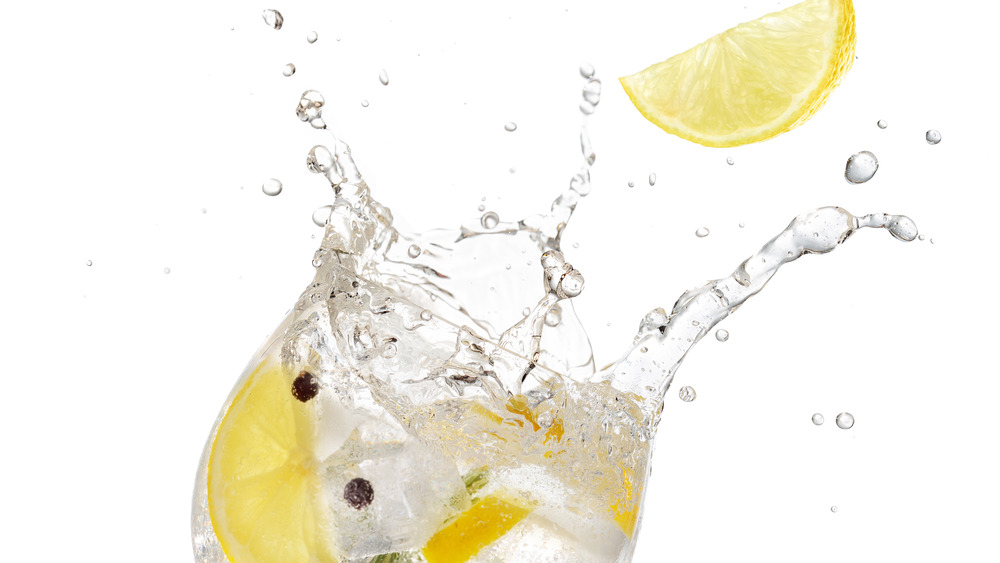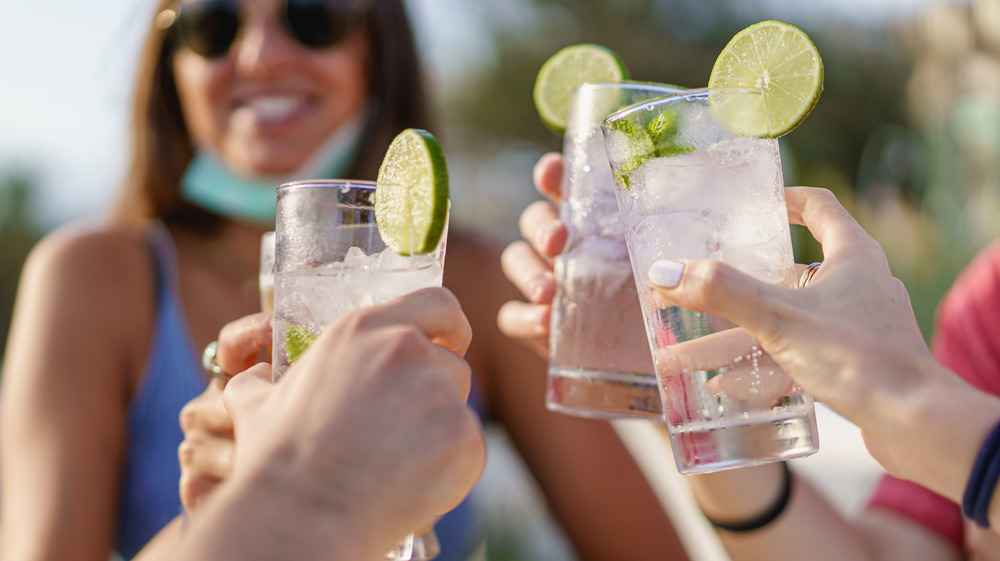Why You Should Think Twice Before Putting A Lemon In Your Drink
It's a seemingly innocuous request — "can I have a glass of water with lemon?" Especially when out at restaurants or bars, a lemon wedge in your beverage is about the freshest, healthiest choice you can imagine. With the research touting the benefits of lemon water, there's no good reason why you wouldn't ask for a slice of lemon in your beverage. Right?
Unfortunately, in restaurants, lemon wedges might be adding a little more than vitamin C to your drink. According to a study published in the Journal of Environmental Health, up to 70 percent of the lemon wedges served in restaurants are laden with bacteria. Even more horrifying, they identified over 25 different kinds of bacteria, including E. coli, yeast, and human fecal matter. Yes, poop — most likely from poor handwashing practices by employees and patrons alike. Researchers also noted the presence of specific strains of bacteria that are likely the result of cross-contamination from poultry and meat preparation surfaces.
Can I get sick from putting lemons in my drink?
The good news is that while the lemons themselves might be less-than-sanitary, there haven't been any illnesses directly associated with contamination from garnishes on drinks (via Good Housekeeping). The porous peels of lemons, limes, oranges, and similar fruits give bacteria plenty of places to hide. The 2007 Journal of Environmental Health study says that more research needs to be done testing other garnishes, like olives and cherries, and whether the risk of contamination stays the same in alcoholic beverages.
If you want to add lemons to your drink, make it a home-based habit, and skip it at the restaurant — especially if the lemons are left out at a salad bar or garnish rack. When adding lemon to your water at home, you can prevent contamination by using a separate cutting board and knife just for produce. Of course, the best action you can take is to scrub the lemon — and your hands — thoroughly.


